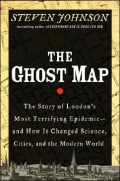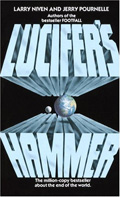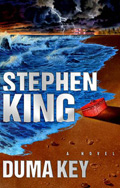Note: This is book #13 of my 52 Books in 52 Weeks challenge for 2008.

I guess you could call this book by Alan Weisman a kind of “speculative nonfiction.” It revolves around a peculiar thought experiment: imagine that every human everywhere on the plant just winked out of existence. Maybe a supervirus wipes us out in a few days. Maybe powerful space aliens decided to relocate every last one of us to an intergalactic nature preserve for our own good. Or maybe Jesus comes back and shouts “OKAY, EVERYBODY OUT OF THE POOL! WE’RE GOING HOME!” Why and how we would vacate the planet don’t matter. What matters is what would happen to it after we left.
This is the strange hook upon which Weisman hangs a litany of topics: ecology, evolution, environmentalism, civic engineering, agriculture, paleontology, zoology, the plastics industry, the petroleum industry, nuclear bombs, and a lot more. In fact comparatively little time is spent discussing how familiar things (say your house or New York City) will rot, fall apart, deteriorate, and eventually get gobbled up by nature. This is surprising, since it’s exactly the kind of thing that the dust jacket and the few talk show interviews I saw Weisman do would suggest that you’d be reading about.
Instead, the author usually follows this pattern with each new section of the book:
- Introduce a new subject (e.g., giant sloths, the ocean, coral reefs, Istanbul (not Constantinople), nuclear waste dumps)
- Talk about what that subject (or whatever preceded it) was like in the distant past, before humans
- Talk about how badly humans screwed it up (usually through over hunting, over farming, or over pollution)
- Talk about what may happen to it over time if we were to just up and go away tomorrow
There are exceptions, but this pattern pretty much explains the majority of the book. It’s often interesting and educational, but I have to admit that I also just as often found it dry, dense, and boring. There’s only so much discussion about how an aggressive plant is going to eventually displace its cultivated neighbors once their human caretakers are gone, or how the gigantic ancestors of tree sloths used to lumber through North American forests before our own ancestors strolled up to them and clubbed them out of existence. Weisman seems to rarely employ any kind of pizazz or character when explaining these things, tending instead to keep it pretty academic. Sometimes you have a subject matter that’s peppy enough to stand on its own (like, say, the life span of nuclear waste or an island of garbage twice as big as Texas floating around in the Pacific), but for a lot of the other material, it needed a stronger and more engaging voice.
And it’s not like Weisman is worried about keeping things neutral –the whole book is unapologetically an environmentalist’s work, with the author’s views and anxieties showing through like sunlight through a plastic grocery bag. And that’s fine and dandy. I just wish he had, say, spruced up his discussion of spruce trees a bit. It was educational, but not as engaging as I hoped it would be.
Others who did the 52-in-52 thing this week:
- Jeremy reviews The Ghost Brigades by John Scalzi
- Heliologue reviews Eragon by Christopher Paolini and The Assault on Reason by Al Gore
- Natasha reviews Yellow Star by Jennifer Roy, Parvanas Journey by Debora Ellis, and Weedflower by Cynthia Kadohata
- Kevin reviews Into the Wild by John Krakauer and An Army at Dawn by Rick Atkinson






































